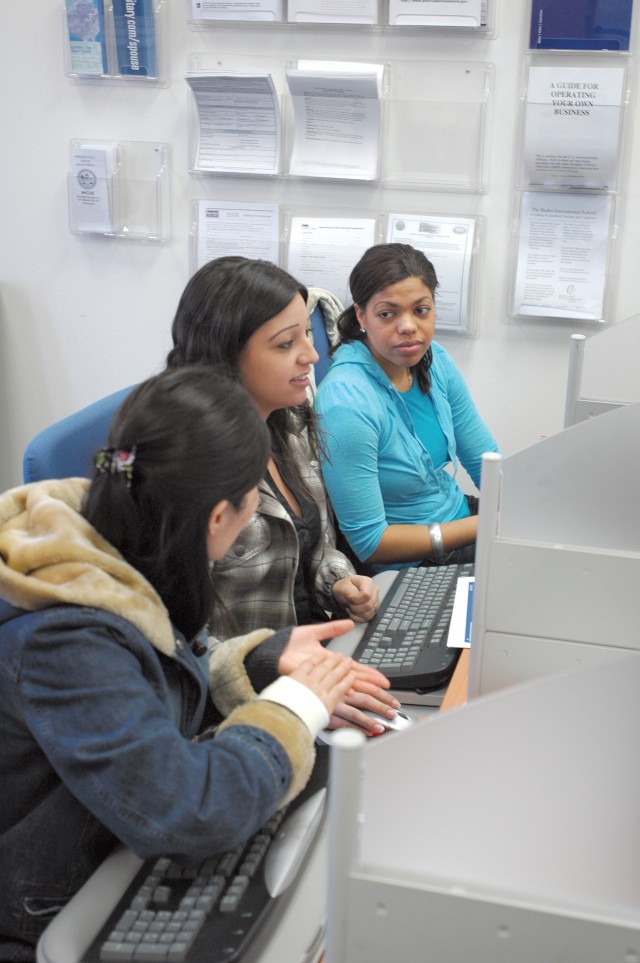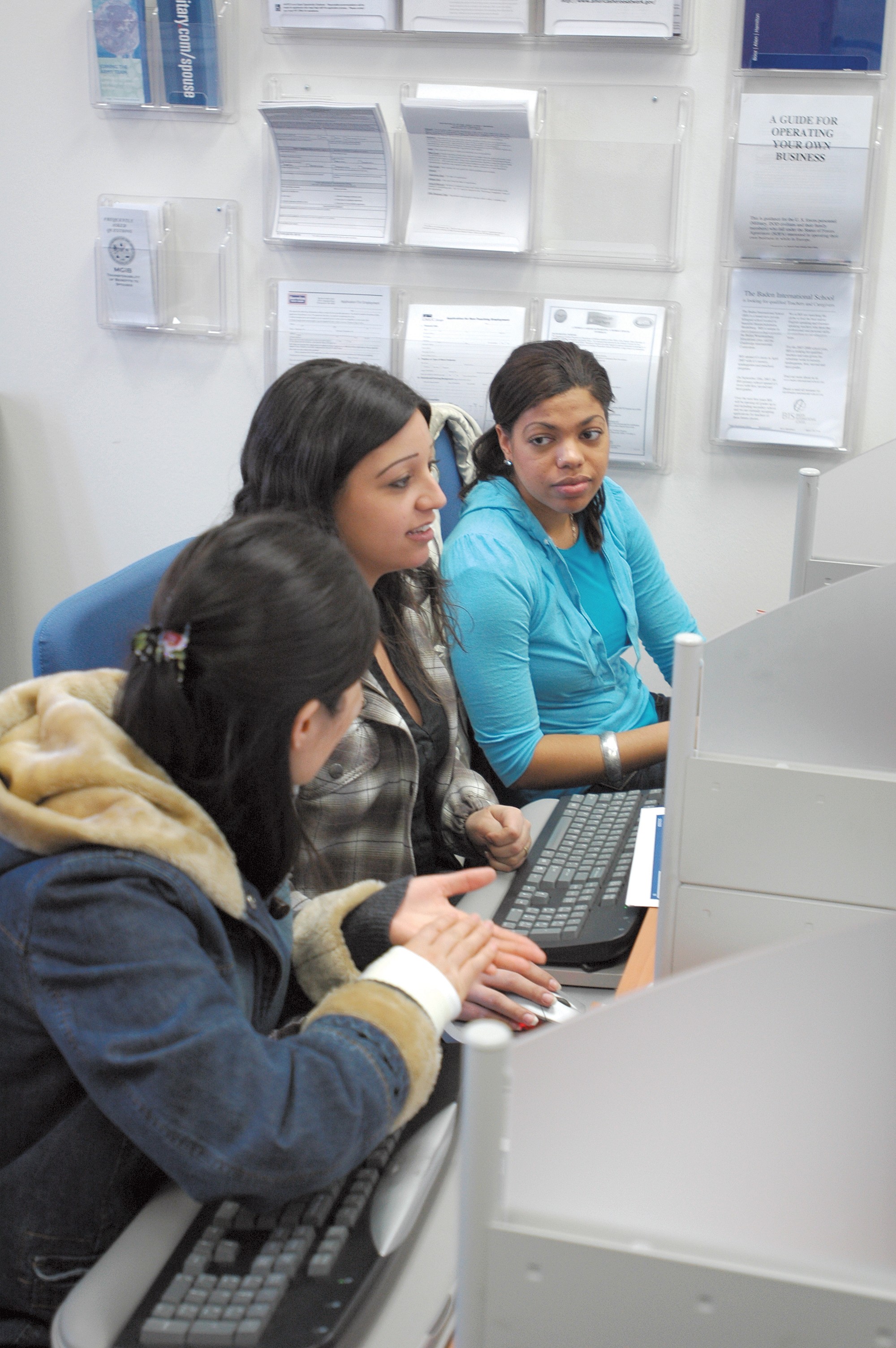HEIDELBERG, Germany -- For Driana Arango, who arrived with her husband in Heidelberg three months ago, the new ACS Spouse Training Program was just what she was looking for.
"I already knew I wanted to get a job and do something," Arango said. "I wanted to find a place where I could actually talk to someone" about getting a job.
Through the Families Learning About Germany, or FLAG, class, Arango learned about the Employment Readiness Center operated by Army Community Service, where she met Michiel DeVito, Heidelberg's employment readiness program manager.
DeVito found out what Arango was looking for and gave her options.
What came out of Arango and DeVito's meeting was the ACS Spouse Training Program, which incorporates the different services offered by the Employment Readiness Center into one program.
"It's formalizing what we've done before, giving it a structure," DeVito said.
"In Heidelberg, there was nothing that ... gave you some education, some skills, formalized training plus on-the-job training."
Thanks in part to the Army Family Covenant, DeVito said she is able to work individually with more clients.
"Finding a job and changing your skill basis is one on one. It's not a one size fits all for us," DeVito said.
"Army Family Covenant money has been targeted in the support area for us. That frees our program managers up to really look and see what's out there and who needs what kind of support and better focus the resources we have.
"We're able to really look at our community and our population," DeVito said, "and say 'OK, in line with the Army Family Covenant, who are we not helping right now, or how can we better assist''"
The Spouse Training Program is an outgrowth of that spirit.
"We're trying to make sure that young spouses that are new to the military ... know also that this is a place they can come and look at enriching their work experience."
Participants make an agreement to commit to 60 hours of documented volunteer work, which gives them on-the-job training, and take four classes, preferably two computer skills classes and two employment skills classes, like resume writing or interviewing skills.
DeVito said the volunteer hours alleviate the catch 22 found in most career fields - you want a job, but need experience, but to get experience you need a job. Volunteer time solves the problem for job seekers.
Arango, who will soon start her new job as a teller at the DoD Community Bank at the Community Support Center, said she really enjoyed her volunteer hours as a front counter worker at ACS.
"It's a really great way to get out there," Arango said. "(It was) a great opportunity to get to know what's out there for you, all the options you have, all the help you can get. If you have a goal, just get out there and look for resources that can help you get that."
(Editor's Note: Jason Austin writes for the USAG Baden-Wuerttemberg newspaper, the Herald Post.)


Social Sharing